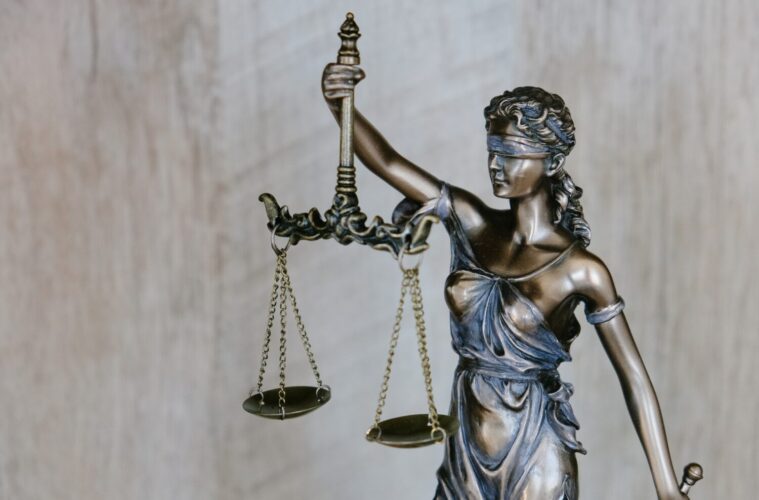According to America’s oldest cannabis reform organization, the nation has now reached 2.3 million expungements.
The National Organization for The Reform of Marijuana Laws said that number came from the available information since states started taking action in 2018. California has proven to be one of the most active states with an estimated 200,000 convictions cleared. Another new law signed by Governor Gavin Newsom is expected to provide relief to 34,000 more people.
The other states that are the most active clearing cases are Illinois, Missouri, New Jersey, New York and Virginia.
“Hundreds of thousands of Americans unduly carry the burden and stigma of a past conviction for behavior that most Americans, and a growing number of states, no longer consider to be a crime,” NORML’s Deputy Director Paul Armentano said. “Our sense of justice and our principles of fairness demand that public officials and the courts move swiftly to right the past wrongs of cannabis prohibition and criminalization.”
After the new numbers were announced, we reached out to Armentano. We asked him what the biggest lessons the movement had learned about expungement prior to the debate moving toward federal legalization.
Armentano noted jurisdictions that have been most effective at expunging/sealing convictions for the greatest number of people are those that facilitate the automatic review and expungement of records.
“In these jurisdictions, state courts are mandated to review existing records and issue legal relief to those with qualifying convictions. Importantly, those eligible for relief do not have to take any action on their own behalf,” Armentano told L.A. Weekly. “Obviously, in these instances, the wider the parameters that exist for those eligible for relief, the more citizens will receive expungements. Further, states that impose timelines for this process and that appropriate funding for this process are more likely to see faster results.”
The states that didn’t automate the process have seen far fewer results. Even with a lot of well-intentioned nonprofits hosting expungement clinics in hopes of pushing their communities forward, it just can’t compare to the mass digitization of the process.
Armentano argues on top of all the hoops people have to jump through when it’s not automatic, there are other hurdles.
“This is likely because many eligible applicants are unaware of the law change, are unable to navigate the petition process, or may not be certain whether they have a qualifying conviction on their record,” Armenatano said. “At a minimum, provisions facilitating expungement should be part and parcel with future marijuana legalization laws, and that handful of legal states that do not currently engage in this process should prioritize doing so. Our sense of justice and our principles of fairness demand that public officials and the courts move swiftly to right the past wrongs of cannabis prohibition and criminalization.”
As legalization gets more and more commonplace, we hope helping people clear their records so they can live a better quality of life stays at the front of everyone’s minds. We asked the longtime activist Armentano what the best ways are to make that happen. He was quick to remind, the fight is far from over.
“Marijuana legalization is not a fait accompli. These sort of societal and legal changes only occur when citizens advocate and agitate, and when they remain vigilant in their advocacy. Those who opine in favor of the status quo remain powerful enemies and they are not going away any time soon,” Arementano said. “Further, in many jurisdictions, elected officials are still actively opposing changes in marijuana policy that are supported by the majority of their constituents. The public, therefore, must continue to demand better and insist that their lawmakers legislate on behalf of policies that more closely comport with marijuana’s rapidly changing legal and cultural status.”
Armentano went on to note those who reside in states where cannabis is already legally regulated must not mistakenly presume that the fight is over.
“In fact, in many instances, legalization is a starting point — not the finish line,” Armentano said. “That is because it is only in an environment where cannabis is legal by statute that we can bring all of the necessary stakeholders to the table to negotiate common sense cannabis policies — for instance, those that do not impose excessive taxes of cannabis products, those that do not arbitrarily limit the total number of state-licensed retailers, those that infringe upon parental rights, those that continue to permit employers to refuse to hire or fire workers solely because of their off-the-job cannabis use, etc. Ending the decades-long discrimination and stigmatization of those who consume cannabis does not happen overnight, and it doesn’t necessarily happen just because we’ve enacted legalization.”
Armentano closed with the fact this process takes years of effort and diligence.
Advertising disclosure: We may receive compensation for some of the links in our stories. Thank you for supporting LA Weekly and our advertisers.

